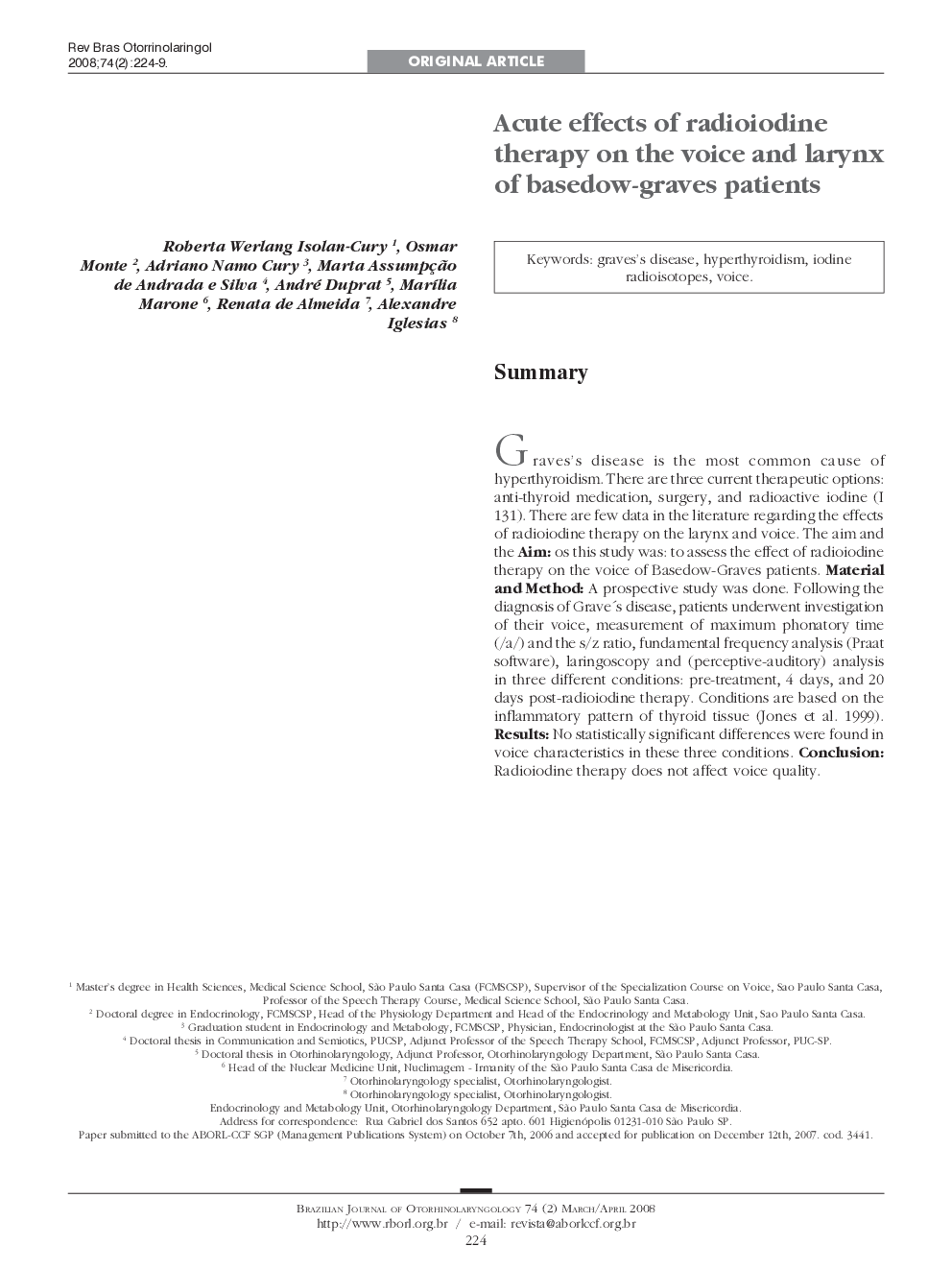| Article ID | Journal | Published Year | Pages | File Type |
|---|---|---|---|---|
| 4106992 | Brazilian Journal of Otorhinolaryngology | 2008 | 6 Pages |
SummaryGraves's disease is the most common cause of hyperthyroidism. There are three current therapeutic options: anti-thyroid medication, surgery, and radioactive iodine (I 131). There are few data in the literature regarding the effects of radioiodine therapy on the larynx and voice. The aim and theAimos this study was: to assess the effect of radioiodine therapy on the voice of Basedow-Graves patients.Material and MethodA prospective study was done. Following the diagnosis of Grave's disease, patients underwent investigation of their voice, measurement of maximum phonatory time (/a/) and the s/z ratio, fundamental frequency analysis (Praat software), laringoscopy and (perceptive-auditory) analysis in three different conditions: pre-treatment, 4 days, and 20 days post-radioiodine therapy. Conditions are based on the inflammatory pattern of thyroid tissue (Jones et al. 1999).ResultsNo statistically significant differences were found in voice characteristics in these three conditions.ConclusionRadioiodine therapy does not affect voice quality.
